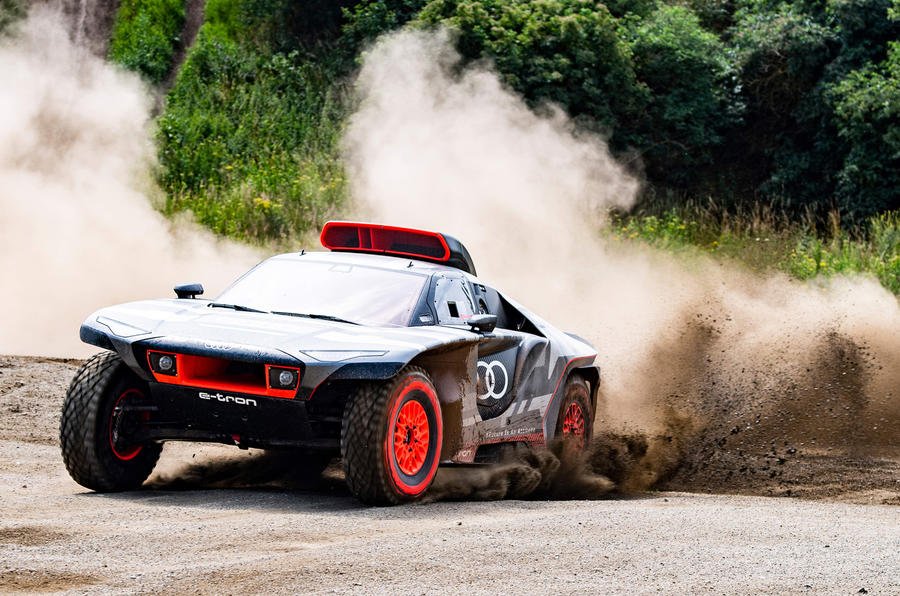New Audi RS Q E-tron is 671bhp range-extender Dakar weapon

Audi will enter the notorious Dakar Rally in Janu new RS Q E-tron rally-raider, which it refers to as an "electrifying high-tech test laboratory".
With testing underway, Audi has confirmed new details of the aggressively styled electrified off-roader, which will face what project manager Andreas Roos called "the ultimate challenge for an electric drivetrain".
With up to 500 miles to cover every day for two weeks, the RS Q E-tron needs to have an onboard charging solution, for which Audi has chosen the 2.0-litre turbocharged petrol engine used in its now-retired RS5 DTM racer, which is unconnected to the wheels and serves as a generator for a 50kWh, 370kg battery pack, developed with an unnamed technical partner.
The petrol engine will spin at “particularly efficient” speeds of between 4500-6000rpm, and is claimed to emit less than 200g/km of CO2 for every kWh of charge gained by the battery. Regenerative braking functionality also features, further boosting EV range when on the move.
An electric motor taken from Audi's 2021 Formula E car, features on each axle, while a third unit serves as an energy converter between the battery and combustion engine. The two axles are not mechanically linked, but torque distribution software plays the same role as a conventional centre differential, helping to save weight and space.
Total output is pegged at 671bhp, but it remains to be seen whether Dakar officials will impose a power limit for the 2022 race.
Audi aims to be “the first car manufacturer to use an electrified drivetrain in combination with an efficient energy converter to compete for overall victory against conventionally powered competitors in the world’s toughest rally”.
Stefan Dreyer, development boss for motorsport projects at Audi Sport, promised that learnings from the Dakar project will "flow into future production models", and confirmed that Audi's passenger car development team is involved with the RS Q E-tron.
